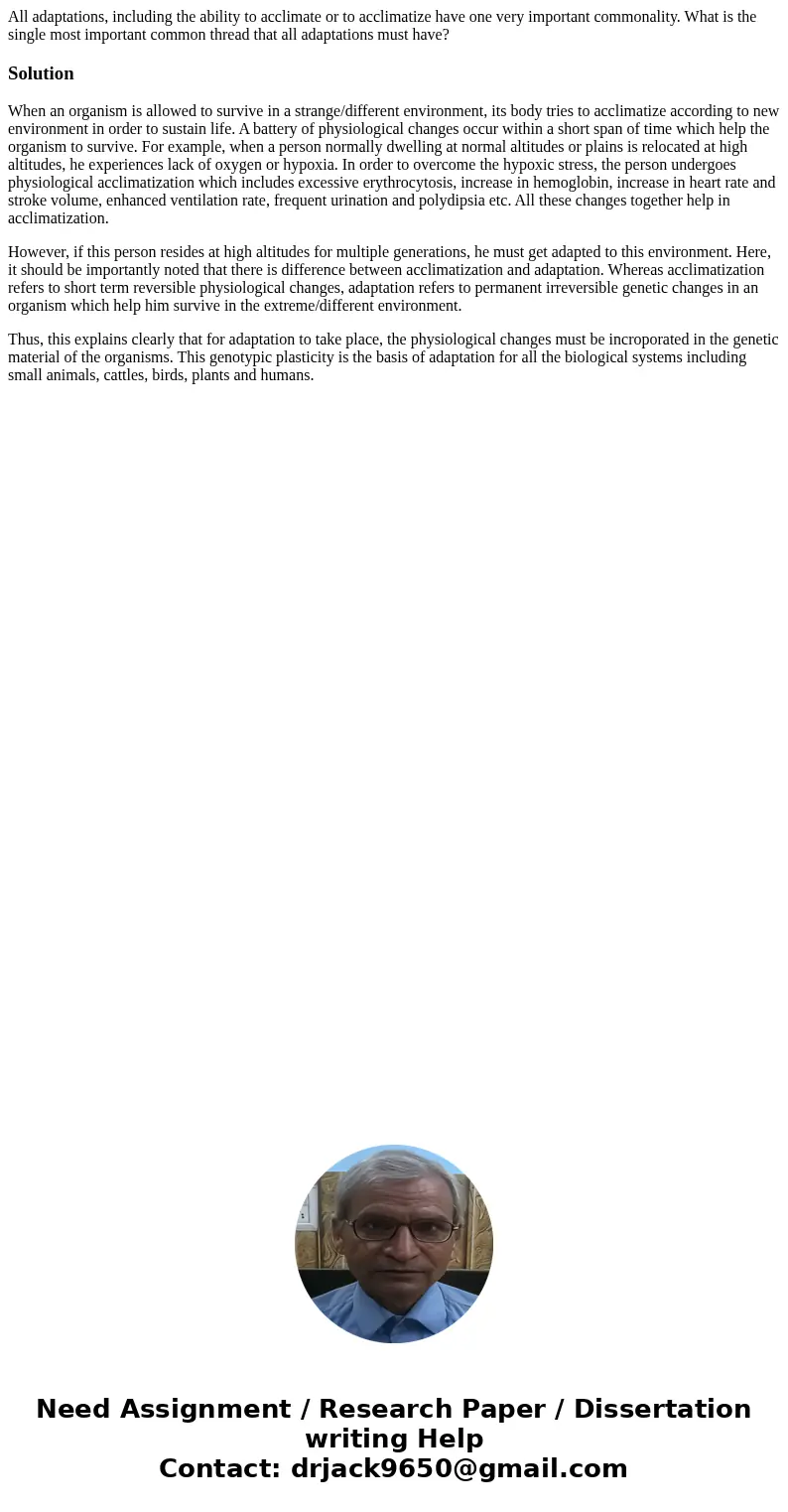All adaptations including the ability to acclimate or to acc
All adaptations, including the ability to acclimate or to acclimatize have one very important commonality. What is the single most important common thread that all adaptations must have?
Solution
When an organism is allowed to survive in a strange/different environment, its body tries to acclimatize according to new environment in order to sustain life. A battery of physiological changes occur within a short span of time which help the organism to survive. For example, when a person normally dwelling at normal altitudes or plains is relocated at high altitudes, he experiences lack of oxygen or hypoxia. In order to overcome the hypoxic stress, the person undergoes physiological acclimatization which includes excessive erythrocytosis, increase in hemoglobin, increase in heart rate and stroke volume, enhanced ventilation rate, frequent urination and polydipsia etc. All these changes together help in acclimatization.
However, if this person resides at high altitudes for multiple generations, he must get adapted to this environment. Here, it should be importantly noted that there is difference between acclimatization and adaptation. Whereas acclimatization refers to short term reversible physiological changes, adaptation refers to permanent irreversible genetic changes in an organism which help him survive in the extreme/different environment.
Thus, this explains clearly that for adaptation to take place, the physiological changes must be incroporated in the genetic material of the organisms. This genotypic plasticity is the basis of adaptation for all the biological systems including small animals, cattles, birds, plants and humans.

 Homework Sourse
Homework Sourse